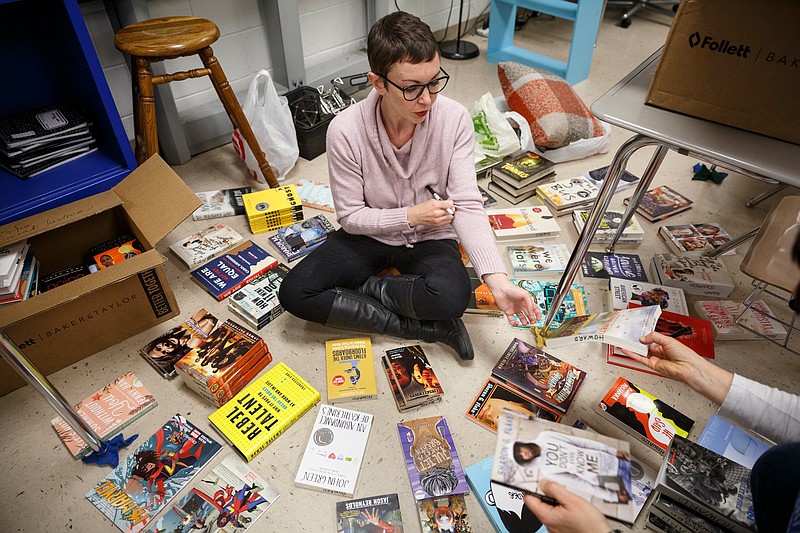Life, indeed, was simpler when you didn't have to wonder whether "Mike Mulligan and His Steam Shovel" might introduce the character of Mike's close, personal friend, Cliff, the contractor, or whether "Harold and the Purple Crayon" would find Harold drawing suggestive images of body parts.
We bemoan the fact that public school teachers and librarians across Hamilton County, and throughout Tennessee, are having to -- before the end of the month -- catalogue every book in their libraries and on their classroom shelves.
Collecting book titles is required by the Age Appropriate Materials Act of 2022, which was passed by the General Assembly after parents -- through their children's virtual learning during the pandemic -- took a closer look at what books were required, what titles were in school libraries and what was offered in classrooms for pleasure reading.
The idea, according to the law, is to "ensure that the materials are appropriate for the age and maturity levels of the students who may access the materials, and that the materials are suitable for, and consistent with, the educational mission of the school."
We think that, in itself, is reasonable.
It was only months ago, after all, that a man stood in front of the Hamilton County Board of Education and, after warning parents who had children that they may want to have them leave the room, read graphic passages from books available in his children's school. From the video of the meeting, those in the room were clearly uncomfortable with the content.
Similar scenes played out across the state.
Clearly, a better system of determining the appropriateness of titles, where they belong and who can read them was in order. The outright banning of books was not. The Age Appropriate Materials Act was, nevertheless, the result.
With its implementation for this school year, an email sent recently to Hamilton County principals and assistant principals said librarians would have to provide a link to the books in their libraries, and teachers would have to offer a list -- with at least the title and author -- of books on their classroom shelves.
A teacher acquaintance of ours described on Facebook how she'd "accumulated thousands of books" as part of her classroom library "for students to read and enjoy throughout the day, to practice reading and become better readers and thinkers, to explore and learn new things." She wasn't sure how she would accomplish the task of getting them all recorded.
With school already underway, it's an unenviable job, since the enumeration can't very well take place during class time.
Even an available book scanning app, a retired teacher told a Times Free Press reporter earlier this week, has limitations because each copy of the same title must be scanned into the system.
However, the law is in place, and no remedy is likely to occur by the end of the month. But we wish a little more thinking had gone into the proposal.
We don't think it's unreasonable for schools to have a list of books in its library, and to be able to post it. Frankly, we thought librarians already had that. If not, how do they know what's on their shelves and what's not, what's missing, and whether books that might be offered them by ideologically driven groups are already in their collection?
As for teachers, already overburdened and underpaid, it would have been sensible to have allowed them to examine their collections, to flag anything that might be of a controversial and sensitive nature, and either post those books for parents to see or for the school to have if needed.
Teachers, after all, don't have to alter their personal opinions about social issues to understand that a subject that may not seem controversial to them might be controversial to some parents and students.
Despite the tedium and time consumption of making the book lists, though, we see at least two upsides that might come from finishing the task.
The first is that it won't have to be done again. Each new book in the future can just be added to the list, and each book too worn to be used can be deleted from it.
The second is that parents will no longer be able to say that "they didn't know" or "they didn't have access" or "why didn't somebody tell them." The list of books will be there for all to see, to do further research on and to make complaints about, which is their right, according to a policy Hamilton County School adopted in July.
We just hate that it had to come to this. We wish it were still as simple as choosing from among "Knute Rockne, Youth Athlete," "Tom Edison, Boy Inventor" or "Annie Oakley, Little Sure Shot."
